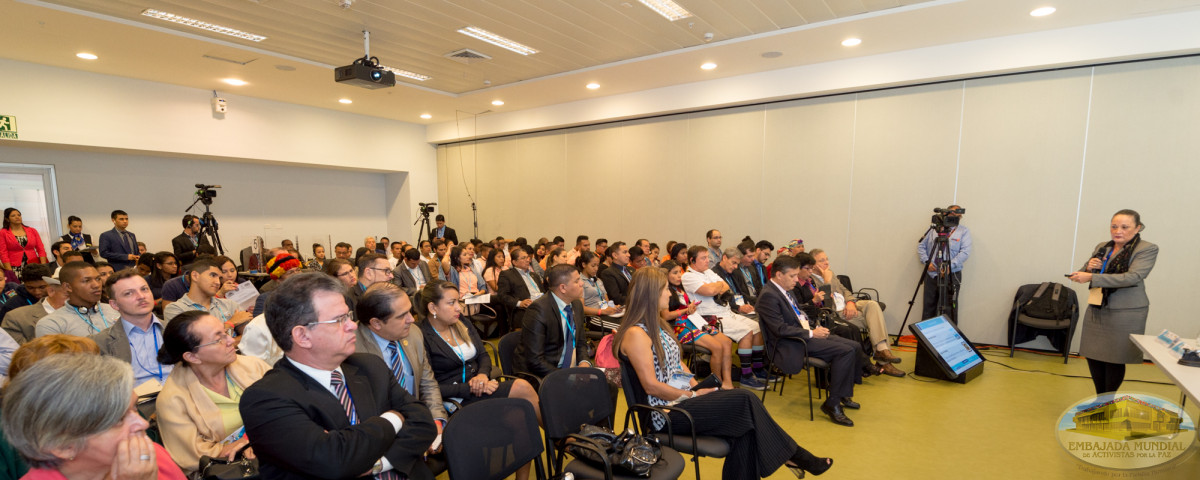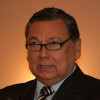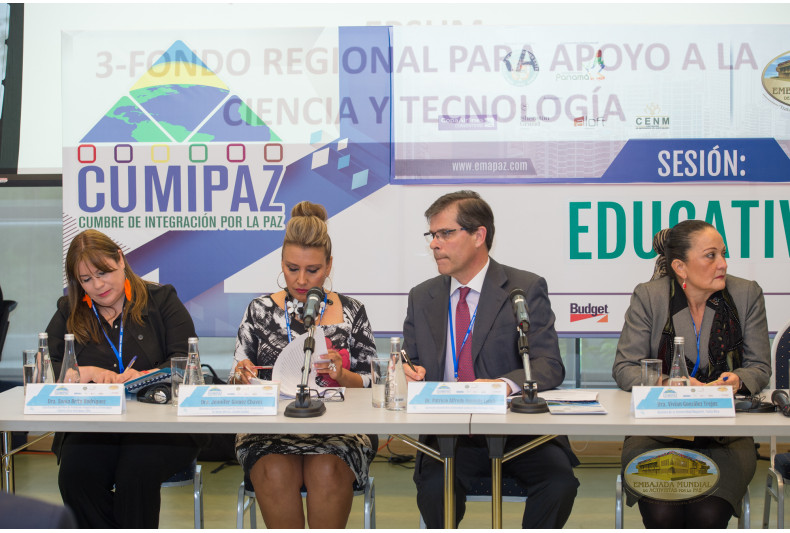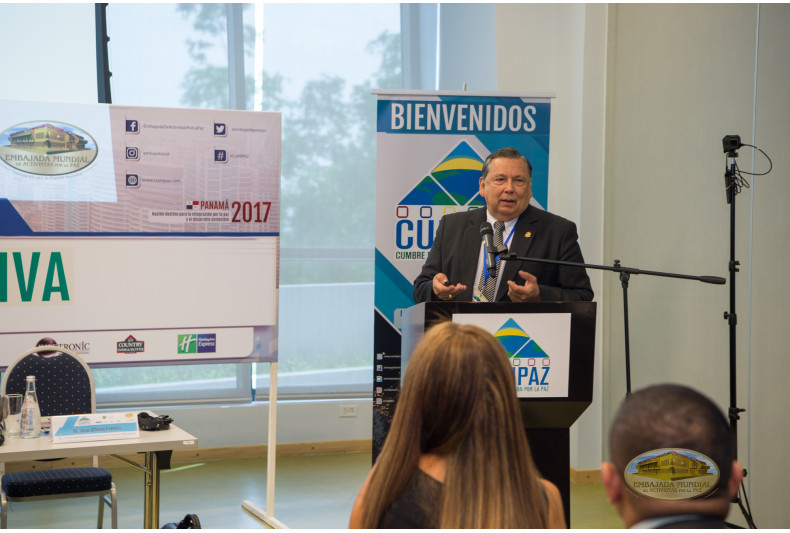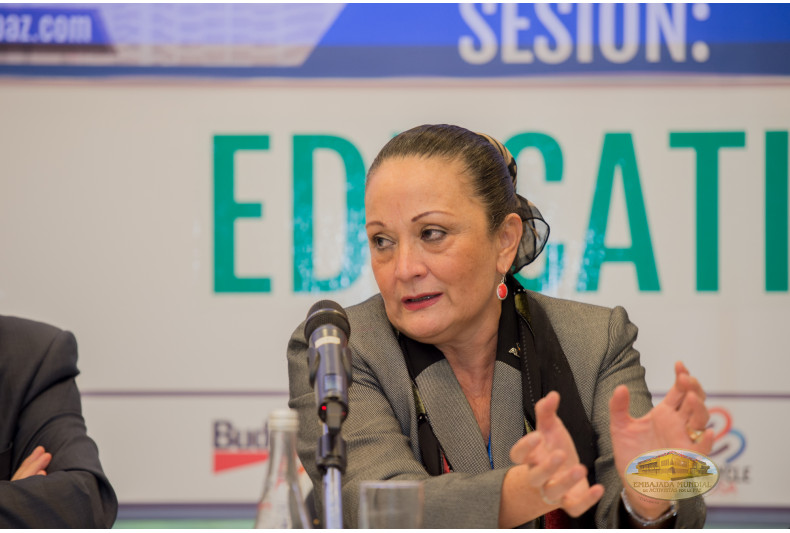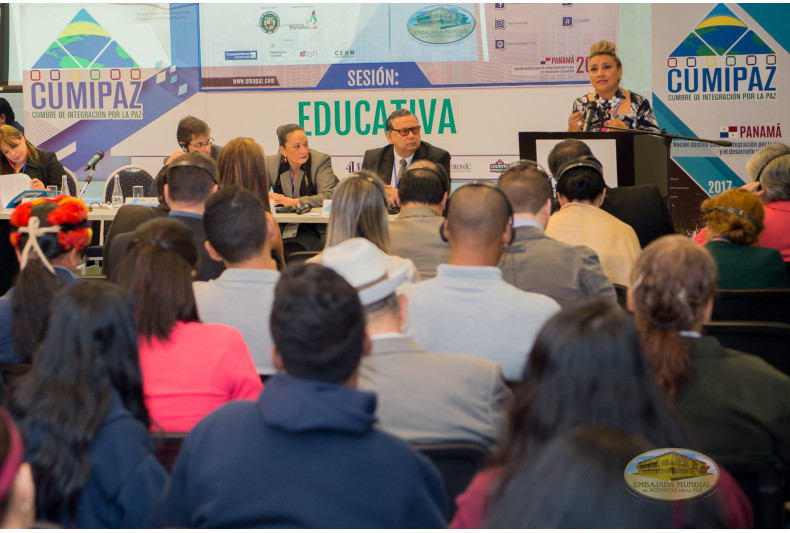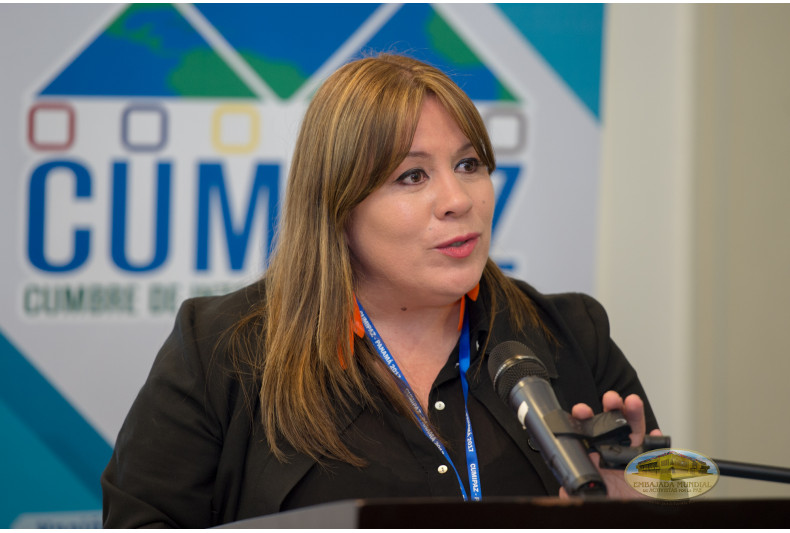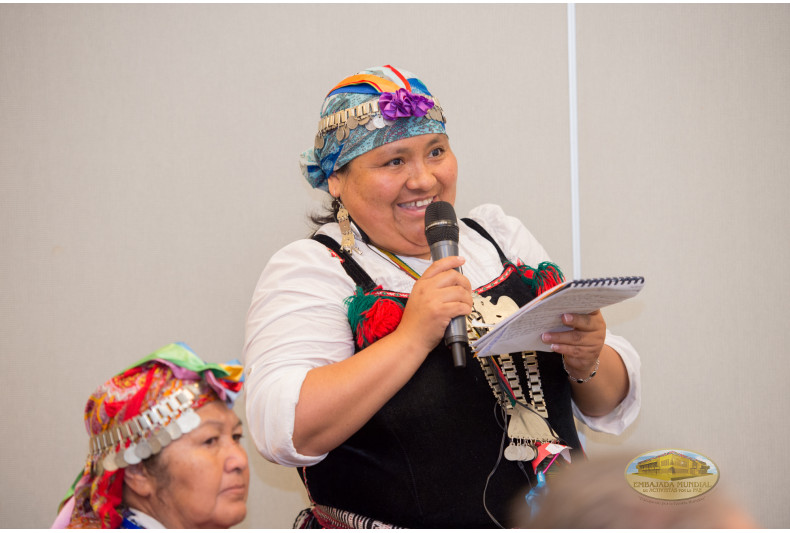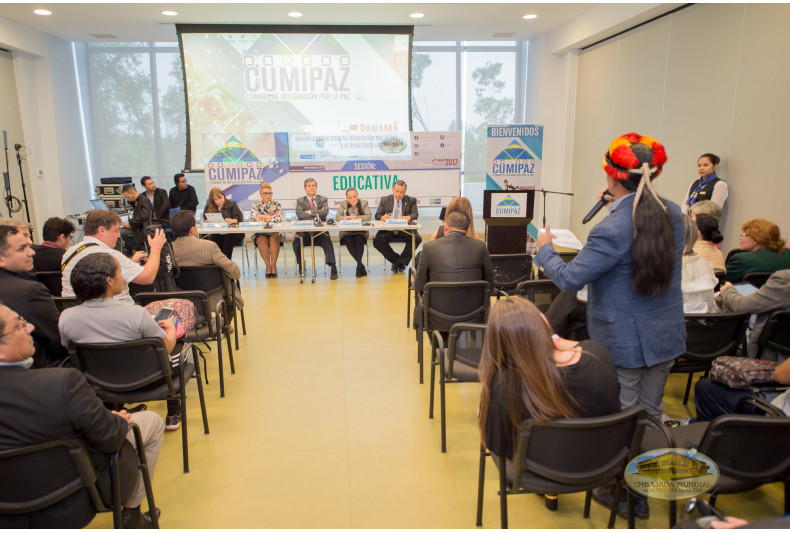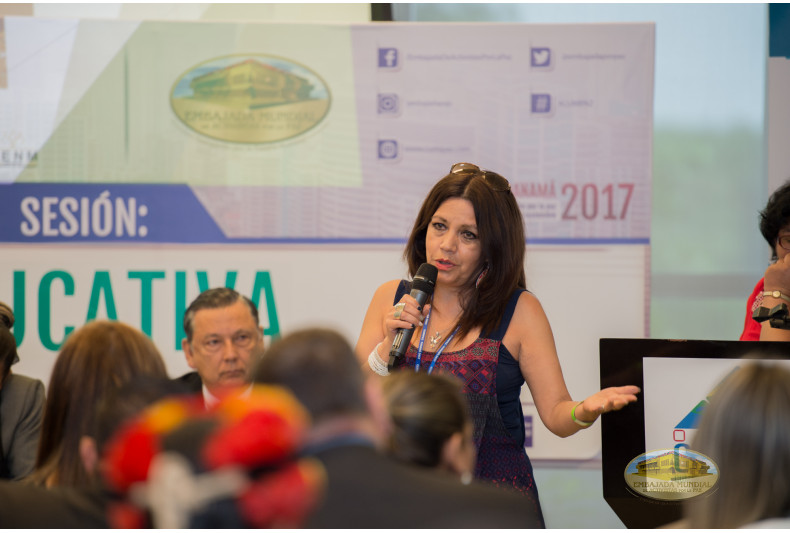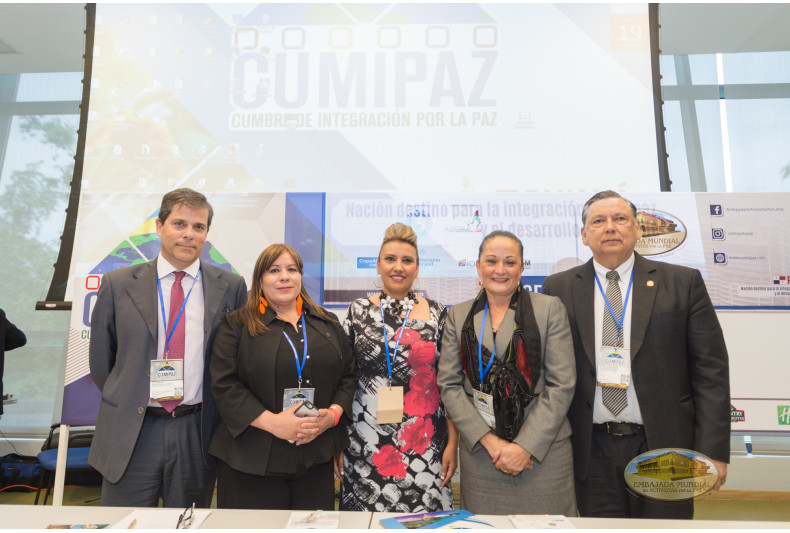New educational schemes for comprehensive education are proposed
See GalleryEducational Session - Thematic Table 2
With the theme "Educational models in today's world: The challenge to achieve the formation of the integral human being", representatives of institutions of all levels of the Ministry of Education integrated the second thematic table of the Educational Session of CUMIPAZ 2017.
The space was moderated by Patricio Rosende, general secretary of the Silva Henriquez Catholic University of Chile.
Juan Alfonso Fuentes, general secretary of the Central American University Higher Council (CSUCA), Guatemala, began the cycle of speeches, lecturing on the importance of changing educational schemes to achieve a comprehensive education.
"We have to get out of mono-disciplines, we have to work with multidisciplinary approaches. It is in the application of different disciplines where it is demonstrated if one has the competence or not".
He also emphasized the commitment that universities should have to give the teaching a comprehensive application, based on research to plan teaching.
Educational responsibility
Vivian González, rector of Magister University, Costa Rica, took as an example the educational model of the house of studies she represents, mentioning the three fundamental pillars on which it is based:
- Social responsibility,
- The environmental responsibility,
- and the humanization of technologies.
Technology in function of the human being, the social responsibility lived really in practical form and the environmental responsibility as part of the social actions of an individual or group.
Similarly, she highlighted the act of multilateral transfer of knowledge, where they receive instruction from international volunteers, from indigenous peoples and vice versa.
Transformational power
Jennifer Gómez, executive director of Proyecto Unidos, of the University of New Mexico, United States, shared the strategies used in her education system as part of the rescue of integral formation.
Among them, she highlighted:
- Make sure that a good number of students reach the education system.
- Have students get involved and include their families.
- Recover students who withdrew from school or university.
"These strategies have a transformational power in education and we do it by providing the community through schools with the right resources to achieve their educational years," said Gomez.
Training in values
For her part, Sonia Brito, coordinator of the Comprehensive Training Plan of the Catholic University Silva Henríquez, Chile, focused her presentation on the competencies that are currently a pedagogical bridge for a formation in values.
Likewise, she commented that most educational models place the event outside the person, relieving theories, methodology, strategies, and evaluations exclusively from the technical point of view, which do not respond to identity and culture.
"The important thing is to think about education and act accordingly, understanding that the training of people to transform societies is a construction that can be created and recreated with nuances, readings, interpretations and multiple ways of carrying them out," she added.
This space ended with a question and answer session that allowed those present to express their ideas and foretell that the creation of new models of education is the way to achieve the formation of the integral human being.
